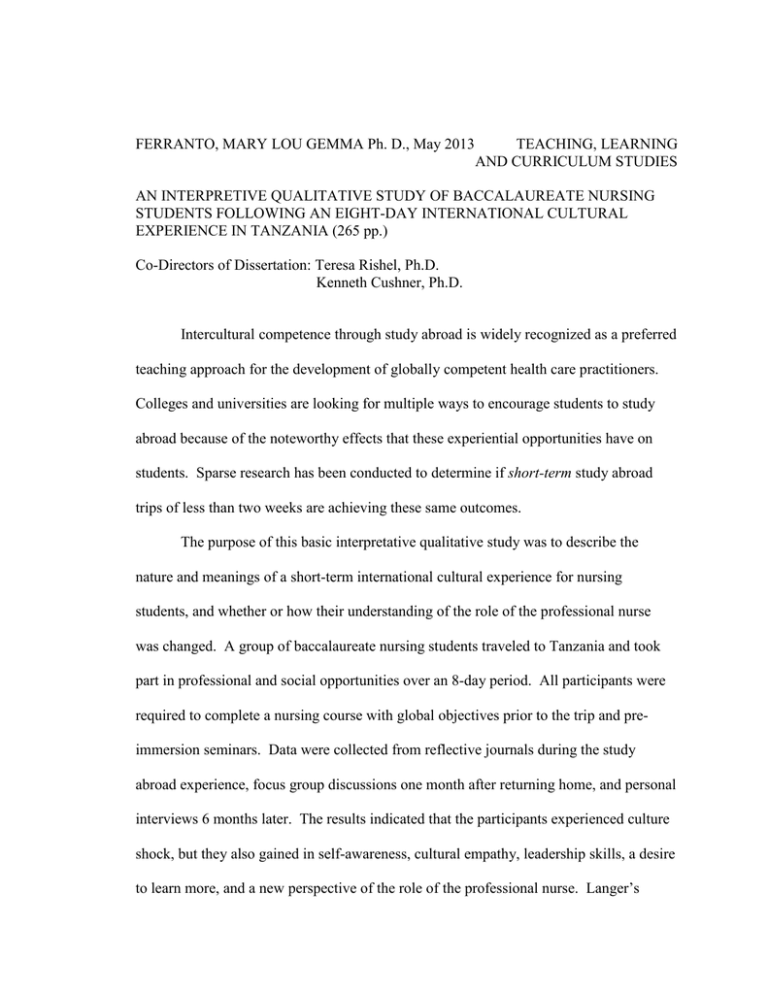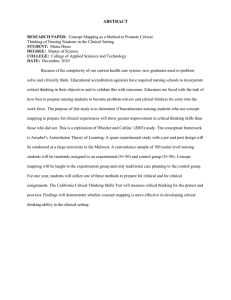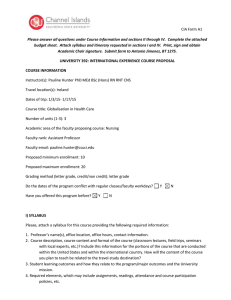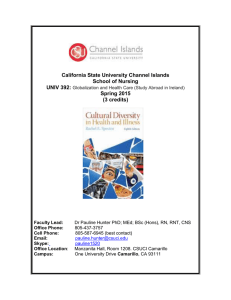FERRANTO, MARY LOU GEMMA Ph. D., May 2013 TEACHING, LEARNING
advertisement

FERRANTO, MARY LOU GEMMA Ph. D., May 2013 TEACHING, LEARNING AND CURRICULUM STUDIES AN INTERPRETIVE QUALITATIVE STUDY OF BACCALAUREATE NURSING STUDENTS FOLLOWING AN EIGHT-DAY INTERNATIONAL CULTURAL EXPERIENCE IN TANZANIA (265 pp.) Co-Directors of Dissertation: Teresa Rishel, Ph.D. Kenneth Cushner, Ph.D. Intercultural competence through study abroad is widely recognized as a preferred teaching approach for the development of globally competent health care practitioners. Colleges and universities are looking for multiple ways to encourage students to study abroad because of the noteworthy effects that these experiential opportunities have on students. Sparse research has been conducted to determine if short-term study abroad trips of less than two weeks are achieving these same outcomes. The purpose of this basic interpretative qualitative study was to describe the nature and meanings of a short-term international cultural experience for nursing students, and whether or how their understanding of the role of the professional nurse was changed. A group of baccalaureate nursing students traveled to Tanzania and took part in professional and social opportunities over an 8-day period. All participants were required to complete a nursing course with global objectives prior to the trip and preimmersion seminars. Data were collected from reflective journals during the study abroad experience, focus group discussions one month after returning home, and personal interviews 6 months later. The results indicated that the participants experienced culture shock, but they also gained in self-awareness, cultural empathy, leadership skills, a desire to learn more, and a new perspective of the role of the professional nurse. Langer’s theory of Mindfulness, Bennett’s Developmental Model of Sensitivity and CampinhaBacote’s Process of Cultural Competence provided the theoretical framework for this study. v




